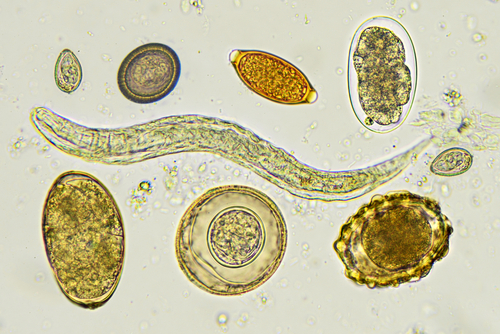A protein secreted by parasitic worms can block immune cells from promoting inflammation, a finding of possible therapeutic value for such inflammatory bowel diseases (IBD) as Crohn’s and ulcerative colitis.
The study by researchers at Edinburgh and Glasgow universities, “A structurally distinct TGF-β mimic from an intestinal helminth parasite potently induces regulatory T cells,” was published in the journal Nature Communications.
IBD is characterized by chronic inflammation caused by poor regulation of pro-inflammatory signals produced by immune cells.
It is known that bacteria are important regulators of bowel activity, and in maintaining a natural balance of immune responses in the bowel. Such immune-regulation activity is not only restricted to bacteria, with studies having also shown that fungi may play a role in IBD.
Previously, researchers found that infection by Heligmosomoides polygyrus, a helminth or worm parasite, could change the natural bacterial balance in the gut in a way that would prevent inflammatory signals in the bowel.
The Edinburgh research team found that these parasites produce a protein that is very similar to human transforming growth factor-beta, or TGF-β. This human protein is known to activate regulatory T-cells (Tregs), a subset of immune cells that keep reactive T-cells under control.
“Discovering a new protein that can potently induce regulatory T cells (Tregs) from human cells is unexpected and very exciting in terms of finding a new potential biologic for inflammation conditions,” Danielle Smyth, the study’s lead author, said in a Glasgow University news release.
“We hope to explore this option and see whether the Tregs our parasite molecule induce offer a regulatory advantage over current treatments,” Smyth said.
This work also supports the “hygiene hypothesis” that suggests worms and other microorganisms may protect a person from the over-reactive immune responses known to cause allergies and disease. Triggering these protective mechanisms may also offer a way of treating patients without the side effects common to immunosuppressant medicines.
“The next horizon … will be to test whether the new protein can be used to treat inflammatory diseases, reaping the benefits of the ‘hygiene hypothesis’ and dispensing with the parasites themselves,” said Rick Maizels, a professor of parasitology at Glasgow.

